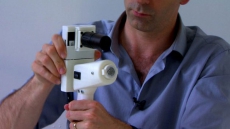A loss of cells in the retina is one of the earliest signs of a form of dementia in people with a genetic risk for the brain disorder - even before any changes appear in their behaviour, says a study.
The US Researchers discovered that before any cognitive signs of dementia were present, these individuals showed a significant thinning of the retina compared with people who did not have the gene mutation.
“The finding suggests that the retina acts as a type of 'window to the brain',” said Li Gan from San Francisco-based Gladstone Institutes, an independent and nonprofit biomedical research organisation.
Retinal degeneration was detectable in mutation carriers prior to the onset of cognitive symptoms, establishing retinal thinning as one of the earliest observable signs of familial frontotemporal dementia (FTD).
“This means that retinal thinning could be an easily measured outcome for clinical trials,” Gan added.
To reach this conclusion, Gan and Ari Green, an associate professor of neurology at University of California, San Francisco (UCSF) studied a group of individuals who had a certain genetic mutation that is known to result in FTD.
Although it is located in the eye, the retina is made up of neurons with direct connections to the brain.
“The retina may be used as a model to study the development of FTD in neurons,” said lead author Michael Ward, a postdoctoral fellow at the Gladstone Institutes and assistant professor of neurology at UCSF.
The study appeared in the Journal of Experimental Medicine.





